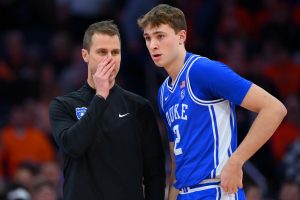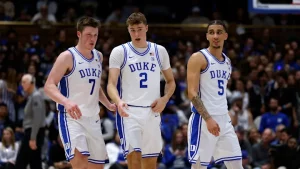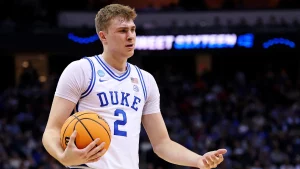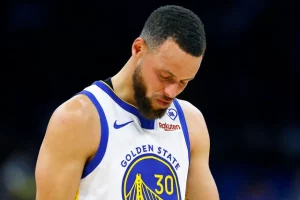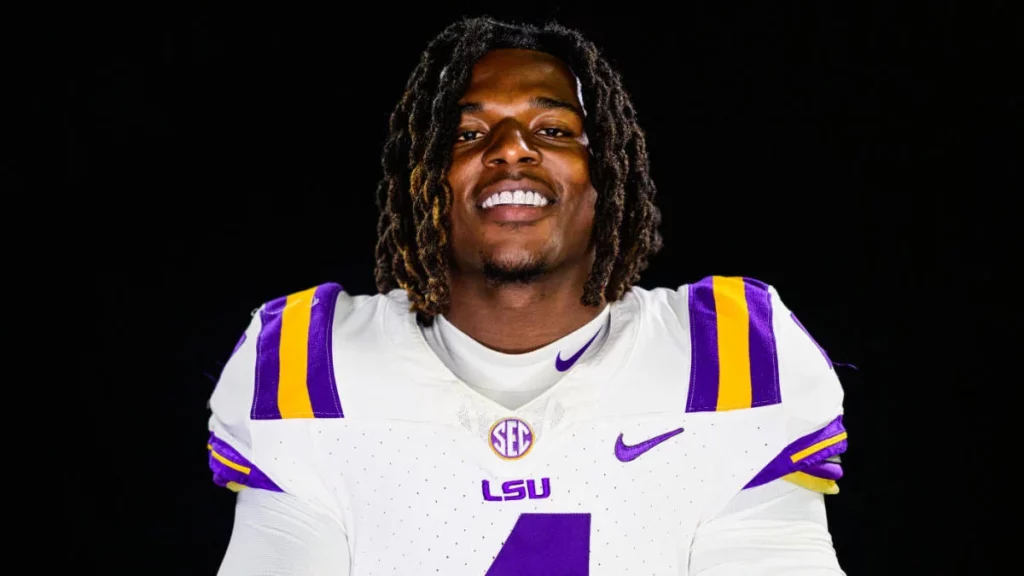
LSU Football Star Harold Perkins Jr. Turns Down Massive $7.7 Million NIL Deal from Tennessee!
In a shocking revelation that’s rocking the college football world, LSU linebacker Harold Perkins Jr. reportedly turned down a staggering $7.7 million Name, Image, and Likeness (NIL) deal from the University of Tennessee. The offer, which would have made him one of the highest-paid non-quarterbacks in the sport, underscores not only Perkins’ loyalty to the Tigers but also the dramatic new era of high-stakes bidding wars in college football.
Sources close to the situation revealed that Tennessee’s offer was part of a last-ditch effort to lure Perkins into the transfer portal during the offseason. But the All-American linebacker, who has become the heart and soul of the LSU defense, flatly declined.
“I came to LSU to be great. Not just for money, not for fame—but for legacy,” Perkins reportedly told teammates and coaches. “This is where I built my name. This is home.”
With NIL valuations climbing to previously unthinkable heights, athletes now face the complex balance of loyalty, legacy, and financial opportunity. For Perkins Jr., the decision wasn’t just about turning down money—it was about turning up the volume on his commitment to LSU.
The $7.7 million offer from Tennessee reportedly included performance incentives, multi-year guarantees, and brand partnerships that would’ve catapulted Perkins into the upper echelon of NIL earners nationwide.
Yet Perkins, who helped anchor LSU’s defense with elite sideline-to-sideline speed and instincts, chose to bet on himself—and on Brian Kelly’s vision for the Tigers.
“We’re building something special here,” Perkins told reporters in spring camp. “I want to finish what we started.”
Tennessee, under head coach Josh Heupel, has emerged as one of the nation’s most aggressive NIL players. With the backing of well-organized collectives and donor support, the Vols have already landed several top recruits and transfers through lucrative NIL offers.
But Perkins would have been the crown jewel.
According to insiders, Tennessee viewed Perkins as a program-changer. With his versatility—capable of playing inside or outside linebacker, rushing the passer, and even dropping into coverage—the Vols believed they could build a defense around him that matched their already electric offense.
“He’s a generational talent,” said one SEC coach. “Tennessee was willing to pay him like a quarterback because they knew how transformative he could be.”
There’s no doubt the NIL deal was tempting. But multiple sources close to the LSU program say Perkins never seriously considered leaving Baton Rouge.
His reasons?
-
Unfinished Business: After a strong 2023 season that ended just shy of a College Football Playoff berth, Perkins is laser-focused on leading LSU to a national title.
-
NFL Stock: Staying in a system where he thrives—and where he’s already a household name—may boost his draft stock more than a big-money transfer.
-
Trust in Brian Kelly: Perkins has developed a strong relationship with the LSU coaching staff, especially defensive coordinator Blake Baker, who has built schemes around his unique skill set.
-
Louisiana Pride: Though originally from Texas, Perkins has embraced Louisiana’s culture and the LSU fanbase in ways few outsiders do. His name is etched into Tiger Stadium folklore, and he’s already a fan favorite.
Inside LSU’s locker room, Perkins’ decision was met with admiration—and relief.
“He’s our leader,” said defensive lineman Maason Smith. “When you see a guy like Harold turn down all that money to stay, it tells you this team is different. We’re playing for more than checks—we’re playing for championships.”
Perkins’ loyalty could have a cascading effect on LSU recruiting. In a landscape where players routinely chase the biggest NIL deal, seeing a superstar turn down millions for the sake of team and tradition sends a powerful message.
Recruits notice. Parents notice. And opposing programs now have to compete not just with LSU’s prestige, but its unwavering culture.
Around the country, Perkins’ decision has been met with both surprise and praise.
ESPN’s Paul Finebaum said, “This is the kind of thing that brings hope back to college football traditionalists. Not every player is going to follow the money. Some still care about the name on the front of the jersey.”
Former NFL players also chimed in.
“Respect to Harold Perkins,” tweeted Hall of Fame linebacker Ray Lewis. “It ain’t always about the bag. It’s about the brotherhood and your name. Young man gets it.”
College coaches, meanwhile, are keeping a close eye on the ripple effects.
“There are maybe five defenders in the country who can change the course of a game every play. Perkins is one of them,” said an anonymous Big Ten defensive coordinator. “And he just sent a message that culture still matters.”
Even though he turned down Tennessee’s $7.7 million package, don’t expect this to be the last time Perkins is targeted.
Other powerhouse programs—some with even deeper NIL war chests—could come knocking. Schools like Texas A&M, Miami, and even USC are known for aggressive NIL dealings.
But LSU insiders are confident Perkins is immovable.
“He’s all-in,” one source said. “This wasn’t a decision made lightly. But once he said no to Tennessee, it became clear—Harold Perkins is LSU through and through.”
Heading into the 2025 season, the Tigers are stacked with talent on both sides of the ball. With quarterback Garrett Nussmeier returning and a solid offensive line in place, the offense should be explosive. But it’s the defense—with Perkins at the helm—that could take LSU from contender to champion.
Perkins is expected to move into more of a hybrid linebacker-safety role this year, giving the defense even more flexibility. His ability to rush the passer, spy mobile quarterbacks, and cover tight ends makes him one of the most complete defenders in college football.
If he continues on his current trajectory, he could be a top-10 NFL Draft pick next spring—and perhaps the best linebacker prospect since Micah Parsons.
LSU head coach Brian Kelly didn’t mince words when asked about Perkins’ decision to stay.
“Harold’s commitment isn’t just to our program—it’s to everything LSU stands for. He’s talented, yes. But he’s also tough, loyal, and driven by something bigger than himself,” Kelly said. “He’s everything we want LSU to be.”
Kelly’s leadership—and his focus on building a culture of accountability and competitiveness—has been central to LSU’s rise. And having stars like Perkins buy into that vision only strengthens the foundation.
Harold Perkins Jr.’s decision to turn down a $7.7 million NIL offer from Tennessee is more than just a headline. It’s a watershed moment in the modern era of college football—a reminder that legacy, loyalty, and team still matter.
Yes, NIL has changed the game. Players now have more freedom, more power, and more financial opportunity than ever before. But Perkins’ choice shows that heart still has a place in the sport.
For LSU, it’s a victory that can’t be measured in dollars. For Tennessee, it’s a tough but telling miss. And for fans, it’s a reason to believe that college football’s soul hasn’t been completely sold.
When Perkins takes the field in Death Valley this fall—under the lights, surrounded by 100,000 roaring fans—it won’t be as just another highly paid athlete. It’ll be as a Tiger who chose home over riches, teammates over temptation, and legacy over luxury.
And that, in this new age of college football, might just be the biggest win of all.
